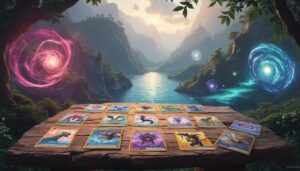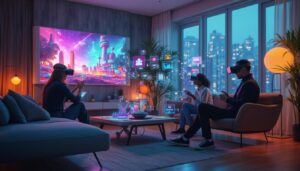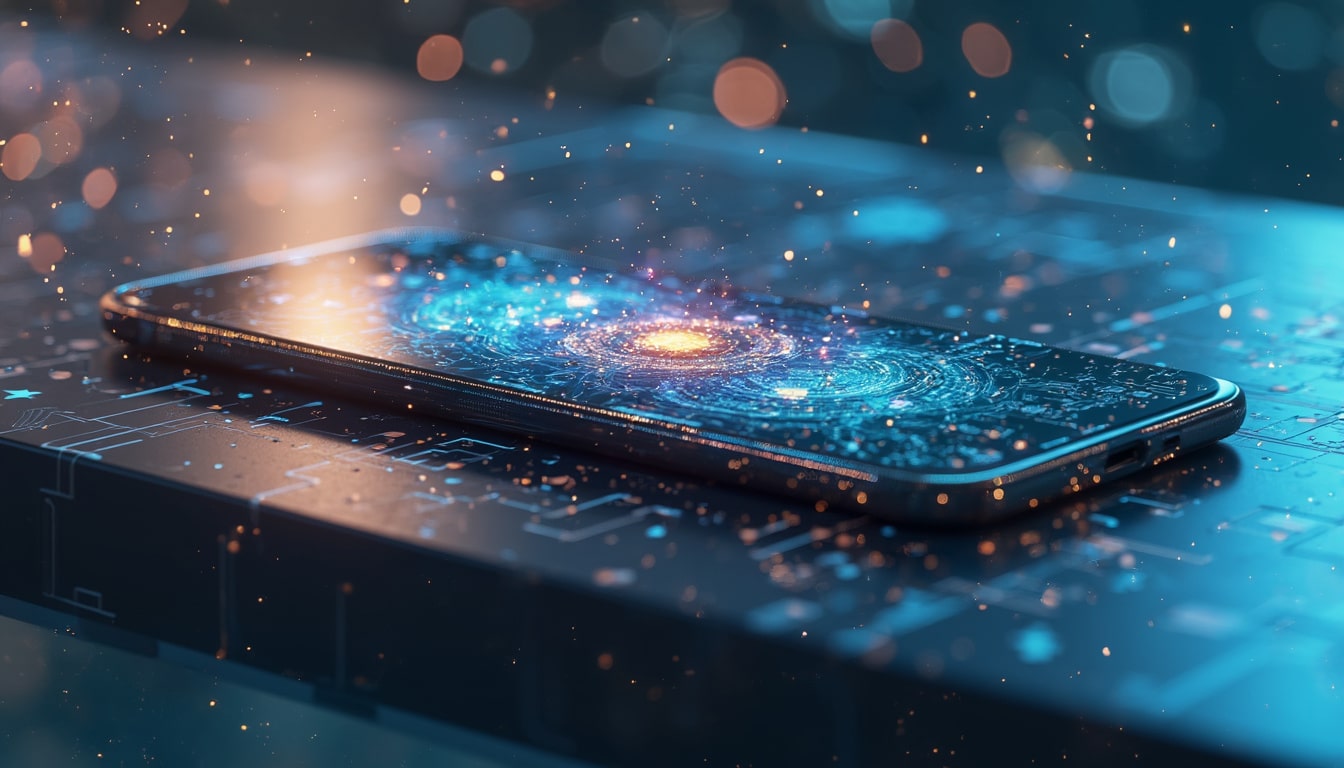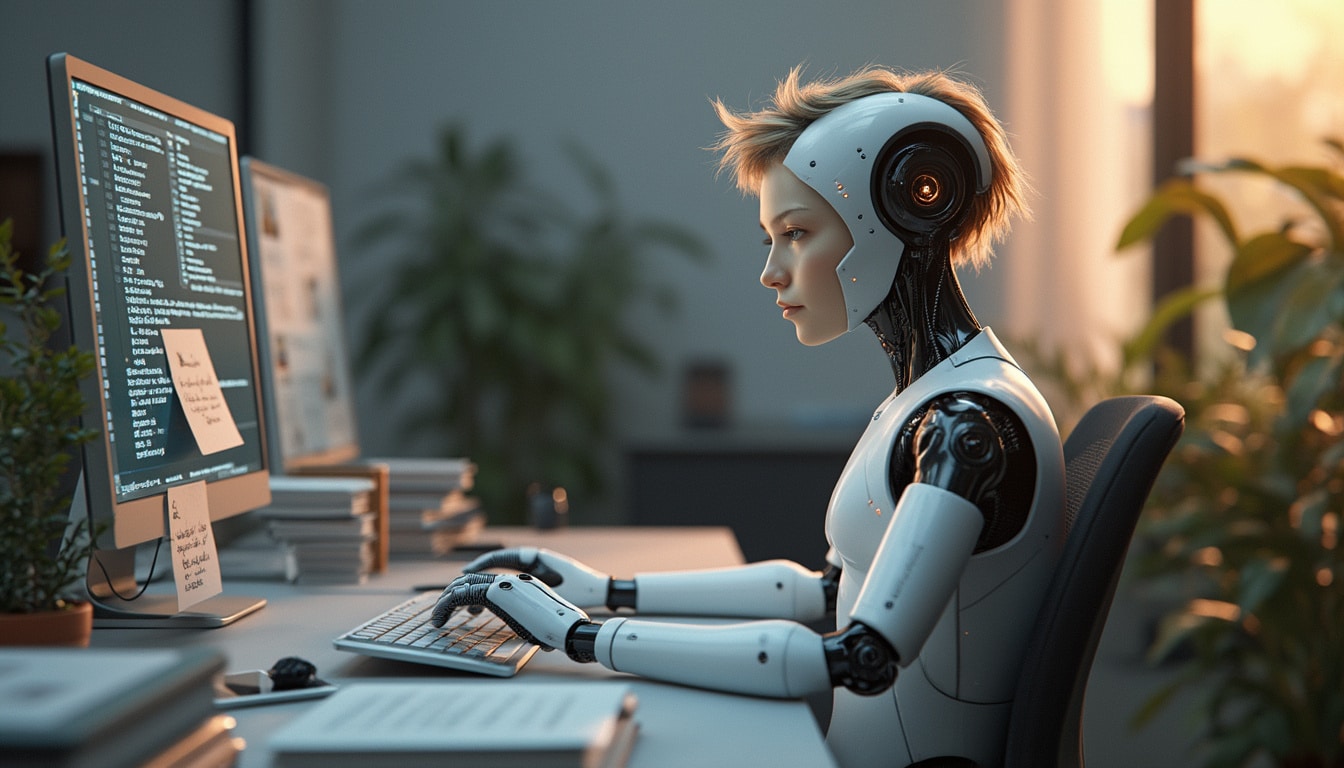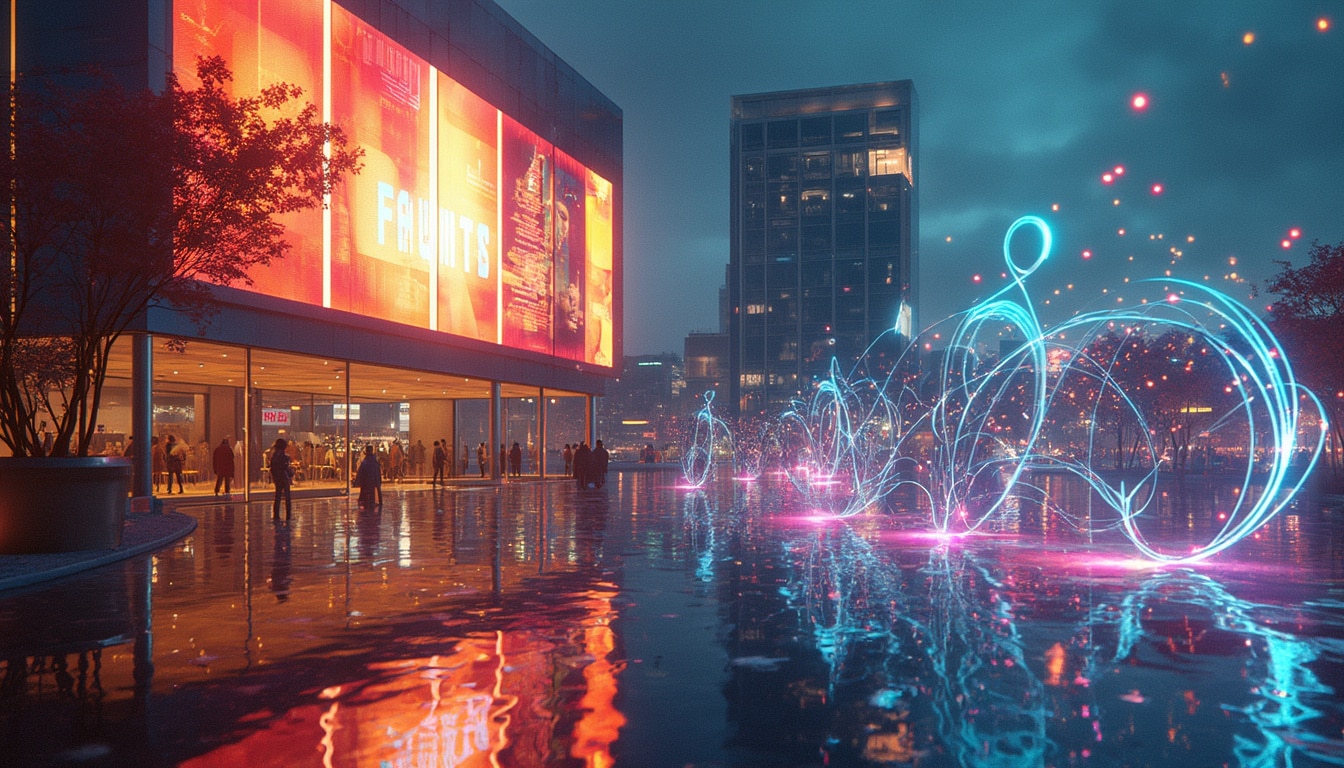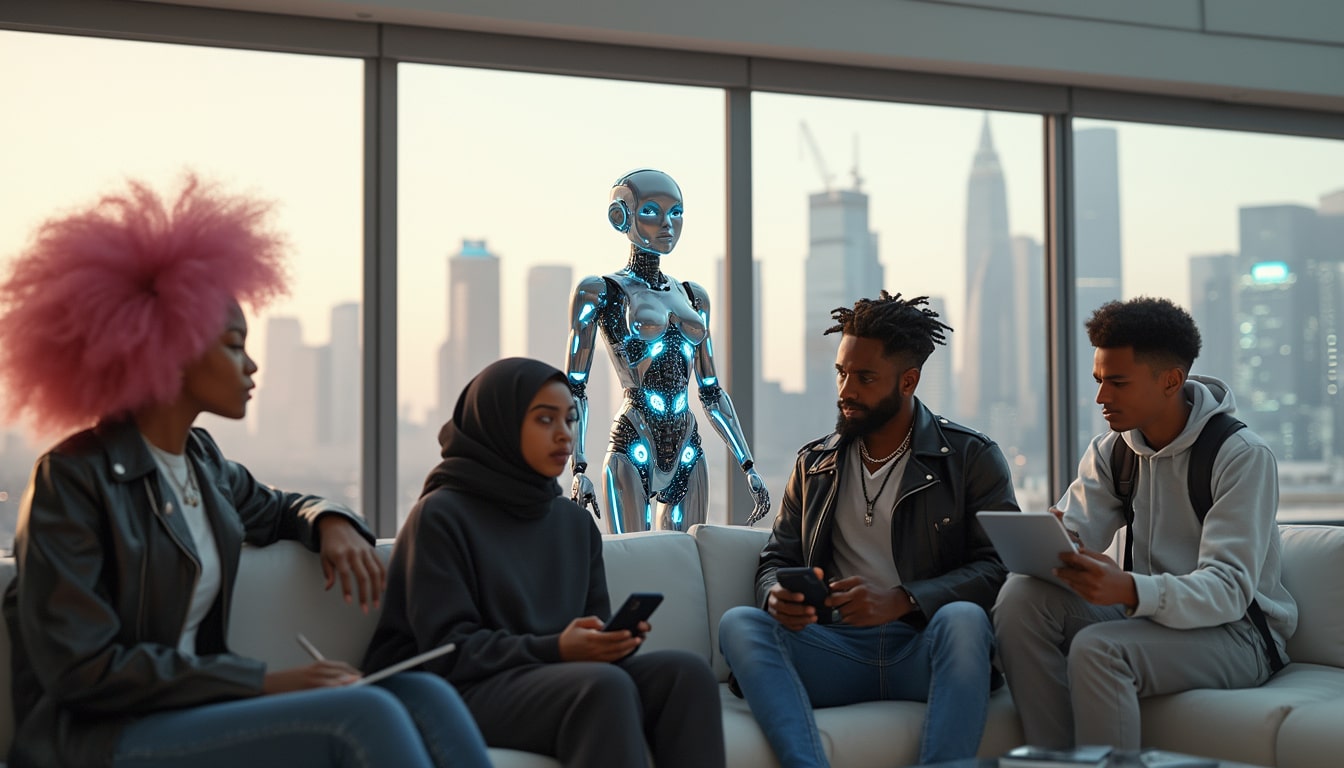Juste quand on pensait que les poètes humains avaient le monopole des sonnets fastidieusement métaphoriques et des haïkus intrigants, l’IA s’est invitée dans le champ de la poésie, brandissant ses vers comme une rockstar futuriste. Ces poèmes générés numériquement, +1 pour chaque algorithme chic, ne se contentent pas de rimer « amour » avec « hour », mais rivalisent avec les chefs-d’œuvre de nos bardes préférés. Alors que les lecteurs préfèrent freiner la course d’analyses littéraires, les créations de l’IA séduisent par leur accessibilité et leur simplicité, une alchimie étonnante qui nous pousse à remettre en question la créativité humaine.
In an unexpected twist, AI-generated poetry is gaining popularity and is often favored over traditional human-written compositions. A study conducted by the University of Pittsburgh showed that many readers find AI poems simpler and more accessible, mistaking them for human works. This development raises questions about the authenticity and complexity that characterize human poetry. Famous poets, like Emily Dickinson and Shakespeare, have met their match in lines penned by algorithms. Yet, some experts argue that the depth of emotion in poetry extends beyond mere algorithms, calling attention to the need for understanding the intersection of AI and human creativity in literature.

Table of contents
Toggledeep and intricate: the unexpected appeal of AI poetry
Imagine a world where robots can create sonnets as easily as they can brew your morning coffee. A world where AI-generated poetry has started to surpass human creativity, not just in speed, but in depth and emotional resonance. This might sound like the beginning of an apocalyptic sci-fi movie, but it’s becoming our reality. According to researchers from the University of Pittsburgh, readers have judged AI poetry as more accessible. Think of it as fast food for the soul, it’s quick, satisfying, and doesn’t require a degree in English to digest.
AI versus human: battle of the couplets
Our beloved bards like Shakespeare and Emily Dickinson once held the reins of poetic mastery, but today, a newbie has joined the race: ChatGPT. Picture a showdown where poets and machines stand side by side, much like a baking contest on a reality show, except instead of cheesecakes, the competition is about crafting verses. In this curious contest, the judges—the unsuspecting readers—often mistake the AI’s work for authentic human creations. This plot twist could make for an excellent reality TV episode. « Guess the Poet » has a nice ring to it, doesn’t it? These bot-crafted verses, often perceived as more genuine, have left folks scratching their heads and re-evaluating the essence of poetry.
Yet, how does one legally challenge a computer for plagiarizing human emotions, you ask? Well, part of the discontent stems from the fact that AI can sift through styles and ages of poetry in the blink of an eye and mimic them with incredible precision. The irony is almost palpable. Humans, with their unique shortcomings and quirks, are now seen as the less authentic poets in this tangled mess of circuits and stanzas. There’s a whole loose-leaf notebook of questions considering where we draw the line between authentic creativity and a cold, calculated opera of code sequences.
a poetic futurama: bridging gaps in creativity
An existential crossword puzzle of cosmic proportions: could the art world, so deeply rooted in feeling, coexist with an algorithm’s logic? The rich soup of AI-generated content has stirred both awe and unease. Though technically savvy, how close does AI come to grasping the distilled essence of human emotion? Or does it all boil down to clever mimicry—a cheap knockoff painting sold at a lavish auction? Some argue that if AI can crank out an emotionally moving piece faster than a human poet can scribble, should we question the human artist’s role at all?
Psychologists tout the benefits of AI’s creative inputs, claiming it enhances human creativity rather than overshadowing it. It’s as if humans noted AI’s poetic prowess and said, « Challenge accepted, let’s sprinkle in some more of that ineffable human experience! » However, as AI poetry garners more accolades, writers face the pressure of redefining art to maintain a sense of moral superiority. In this pursuit of sublimating the AI-kindled flame, humanity grapples to safeguard that which makes us uniquely us. Which, in all honesty, makes for a fantastic plot in this real-life dramedy.






